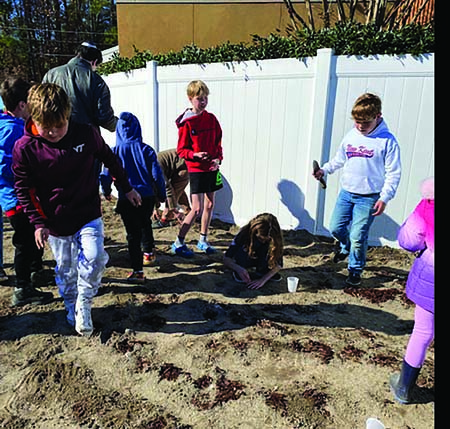By Terry Schultz
On Sunday, Nov. 20, Congregation Or Atid and the Gan Chesed Kindness Garden and children from the Helen and Sam Kornblau Religious School planted an additional 500 daffodil flowers at our 2nd annual planting event in our memorial garden, as a part of the living Holocaust memorial.
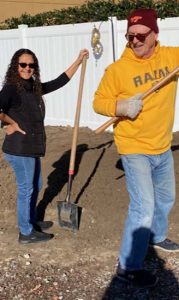 Or Atid has partnered with The Daffodil Project, an international program with Am Yisrael Chai, which sponsors this project and is based in Atlanta. The Project empowers Holocaust education and recalls the memory of the 1.5 million children who died in the Holocaust and who continue to suffer atrocities today in the world.
Or Atid has partnered with The Daffodil Project, an international program with Am Yisrael Chai, which sponsors this project and is based in Atlanta. The Project empowers Holocaust education and recalls the memory of the 1.5 million children who died in the Holocaust and who continue to suffer atrocities today in the world.
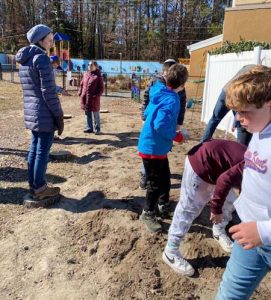 The organization aspires to plant 1.5 million daffodils total. You may ask yourself, why plant daffodils? Planting daffodils is important because it reminds us that life isn’t always easy. Daffodils are dedicated to Holocaust memory because of their resilience. They come back each year like the Jewish people who perished but whose memories we still remember at this occasion.
The organization aspires to plant 1.5 million daffodils total. You may ask yourself, why plant daffodils? Planting daffodils is important because it reminds us that life isn’t always easy. Daffodils are dedicated to Holocaust memory because of their resilience. They come back each year like the Jewish people who perished but whose memories we still remember at this occasion.
The daffodils’ unique shape with 6 petals and bright yellow color signifies the 6-pointed Jewish star of David that all Jewish persons had to wear on their clothing during the Holocaust. Also, Holocaust Survivors will receive daffodils on the anniversary of the Ghetto uprising to commemorate the uprising. In addition, paper daffodils and daffodil pins appear today each spring in the city of Warsaw to help mark the important Ghetto uprising in 1943.
“How can anyone who remembers stay silent?” asked Eli Wiesel (obm), Holocaust Survivor, activist and Nobel Laureate.
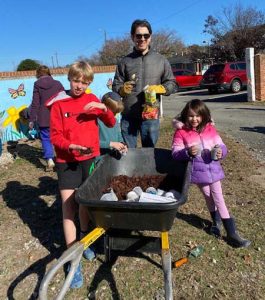 We were honored to welcome Ben Ipson, grandson to Jay Ipson, along with his mother and grandparents, to plant daffodils and explain the program in an assembly prior to the planting. His grandparents have generously donated their 250 daffodils to our garden and wanted to actively plant the flowers as an act of obligation to stand up against hatred in the world today.
We were honored to welcome Ben Ipson, grandson to Jay Ipson, along with his mother and grandparents, to plant daffodils and explain the program in an assembly prior to the planting. His grandparents have generously donated their 250 daffodils to our garden and wanted to actively plant the flowers as an act of obligation to stand up against hatred in the world today.
Jay Ipson was born in 1935 in Kovno, Lithuania. When the Nazi’s invaded Lithuania in 1941, he and his family were sent to a concentration camp there but later hid underground in a hole in a potato field in Lithuania until 1944 when they liberated.
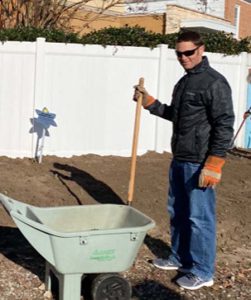 We also will look forward to hearing more about Mr. Ipson at Or Atid’s Yom HaShoah program on April 16.
We also will look forward to hearing more about Mr. Ipson at Or Atid’s Yom HaShoah program on April 16.

